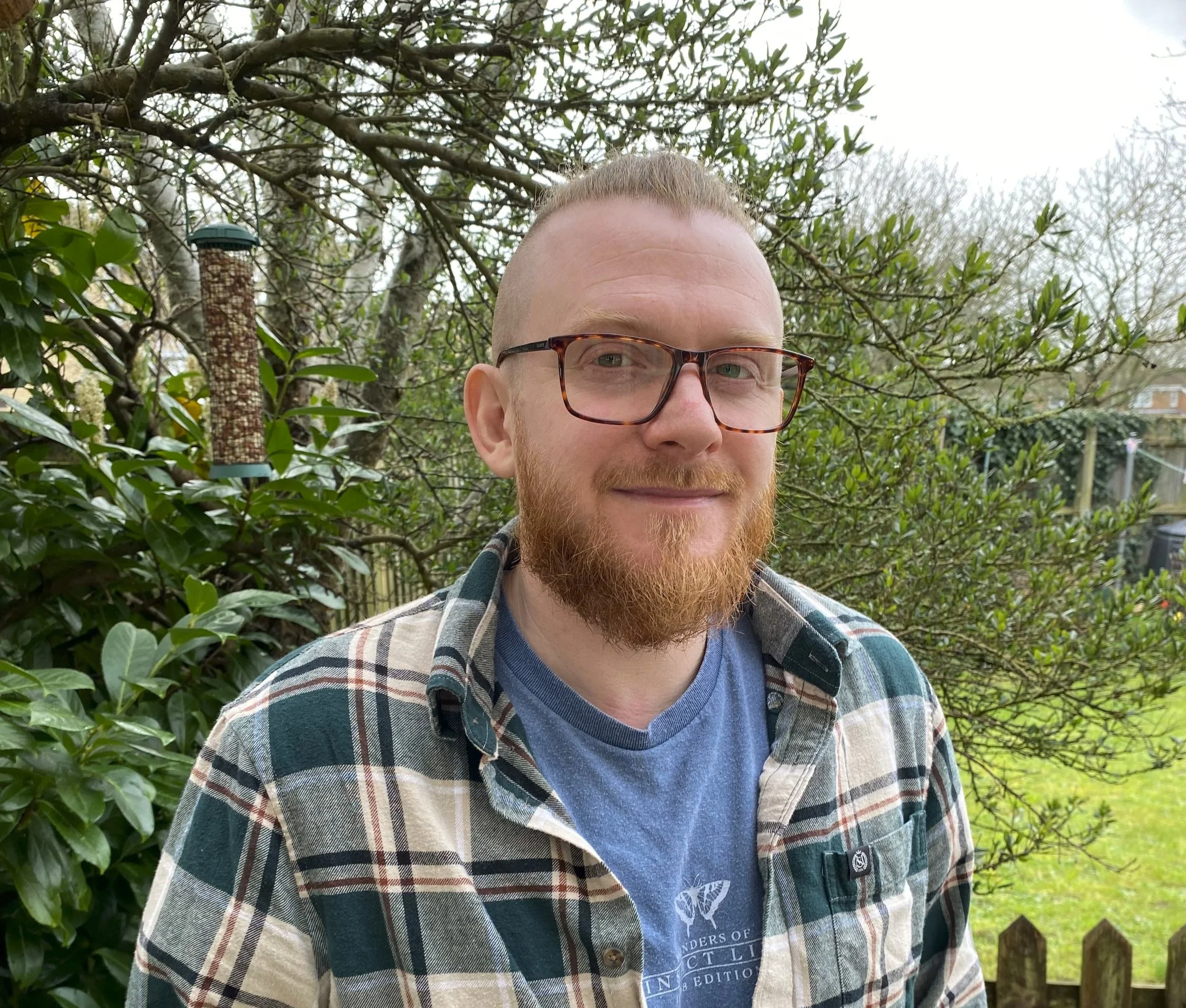
Community Ecology, Biodiversity, & Complex Networks
Our group studies the structure and function of complex ecological communities. We focus on biodiversity in all its aspects, with an emphasis on how small-scale interactions affect broad-scale biodiversity across forest ecosystems. Our research combines novel computational, theoretical, and statistical approaches to help overcome the complexity found in natural communities, with the core aim of making testable predictions about novel communities and future ecosystems.
We’re located at the People & Nature Lab at UCL’s East Campus, part of the Centre for Biodiversity and Environment Research (CBER) within the Department of Genetics, Evolution, and Environment.
Dr. Daniel Maynard
Meet the Team
Dan is Associate Professor in Quantitative Ecology at UCL. With a background in mathematics and ecology, he’s drawn to statistical, big-data challenges and approaches, which are critical for addressing global challenges and making real-time ecological projections.
Dr. Tadhh Carroll
Tadhg is a research fellow in statistical ecology working on the ERC-funded MODFORGE project. He is broadly interested in understanding the dynamics underlying ecological communities, and how we can develop sound statistical approaches to uncover these dynamics and predict their outcomes.
Qiulin Li
Qiulin is a PhD researcher in the AI-INTERVENE programme. She holds a degree in Applied Mathematics and her work focuses on applying deep learning methods to quantify and detect the drivers of forest resilience.
Payton Irvine-Smith
Payton is a PhD researcher working on the ERC-funded MODFORGE project. She has a background in zoology and statistical ecology, and aims to investigate how functional traits and abiotic conditions interactively shape forest communities.
Alastair Pickering
Alastair is a PhD researcher in Computational Ecology at UCL and Kew Gardens. He previously founded and exited an AI-based data analytics company. His research develops scalable models to analyse ecological data and predict ecosystem shifts under climate change.
Research
Our research encompasses four broad themes, all of which focus on the links between biodiversity, species interactions, and environmental change. We work across systems and spatial scales, ranging from soil microbial communities in the laboratory to global forest databases encompassing millions of observations, allowing us to tackle questions from multiple angles.
-
When we picture biodiversity we typically think of the number of species in a region. Yet the resilience and functioning of ecosystems are more closely connected to how functionally unique or redundant the species are, rather than the number of species per se. A core focus of the lab is to map broad-scale patterns in functional diversity and to identify the environmental factors that promote high vs. low functional biodiversity. In turn, we can use this knowledge to understand the resilience of these ecosystems to climate change and invasive species.goes here
-
Survival of a species in a given location requires that it can withstand the range of climate and environmental conditions (abiotic factors), and that it can avoid being displaced or outcompeted by other species in the region (biotic factors). Our work in this area specializes in using Bayesian approaches and stability analysis to understand how different ecological processes leave their ‘fingerprint’ on community structure, allowing us to peer back in time and infer the extent to which survival in a given location is more strongly governed by biotic factors (competition, facilitation) or abiotic factors (moisture stress, thermal tolerance).
-
Rather than focus on modelling the dynamics of communities—which is exceedingly difficult even for simple communities—we focus on using Bayesian statistical approaches to infer how species impact each other, on average, across the landscape. Using this insight we can make robust predictions about whether novel assemblages of species can coexist under future climate conditions. To explore these questions, we rely on observational datasets, theoretical approaches, and laboratory experiments, encompassing a variety of study organisms, ranging from soil fungi to forest inventory databases of tree composition.
-
Understanding the processes that promote biodiversity and stable coexistence is a key goal in ecology. Yet much of our understanding of coexistence is limited to overly simplistic systems, typically comprising only two species. When extrapolated to realistic systems, this theory breaks down, limiting our ability to infer the stability of real-world ecosystems. Our work in this area takes a “network” approach to hyperdiverse systems, using a laboratory model system comprised of saprotrophic fungi to identify and test the factors that promote and maintain biodiversity in large, complex networks.Description text goes here
Teaching / Programme administration
Dan is the programme director of the MSc in Ecology & Data Science, and the co-director of the NERC-funded AI-INTERVENE PhD programme.
He is also a lecturer in Computational Methods in Biodiversity Research (BIOS0002) within the GEE department.
Lab openings
If you’re interested in joining the lab, please get in touch. Although we have no immediate openings, we’re always looking for motivated PhD and Postdocs (also take a look at AI-INTERVENE PhD programme, which lists new PhD projects in near the end of each year). Our research covers a wide range of ecological, computational, and mathematical topics, and we welcome people from across disciplines, including ecology, computer science, statistics, biology, and economics.
We strive to build a diverse and inclusive lab, and we especially encourage people with non-traditional backgrounds to get in touch.
If you’re interested or have questions, email Dan at daniel.maynard@ucl.ac.uk.










